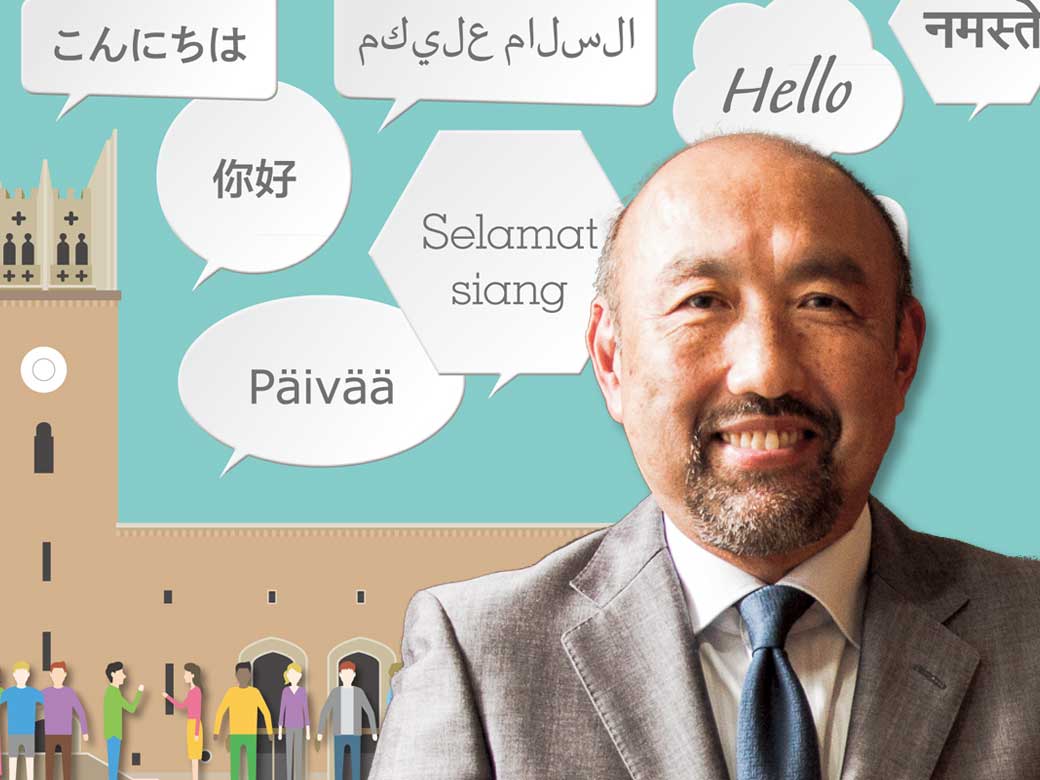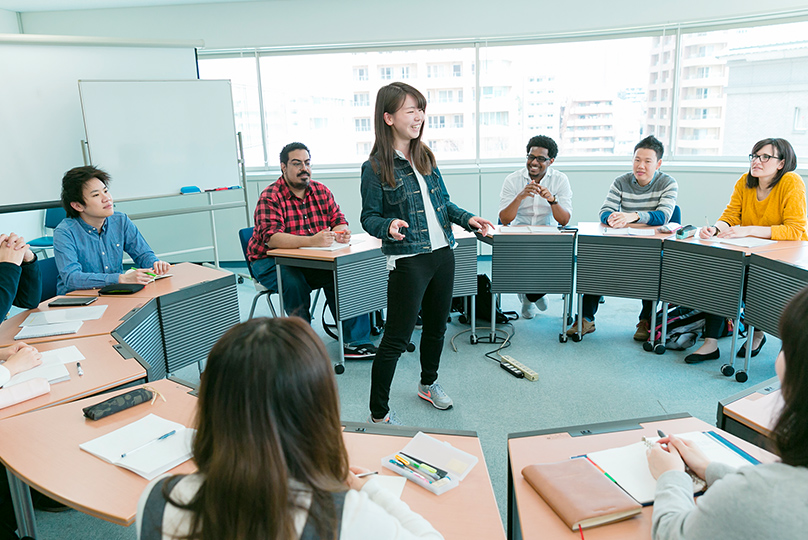Become a “plurilingual” global citizen, leading the world
Mon, Nov 27, 2017-
Tags
Build international experience through student life opportunities
Interview with Norimasa Morita, Vice President for International Affairs and Professor at Faculty of International Research and Education

Professor Norimasa Morita, Vice President for International Affairs
Waseda University, a forerunner of internationalization
Waseda University fast tracked its process of internationalization in the mid-1990s and has continued to lead other Japanese institutions in the effort since then. Triggered by the collapse of the Soviet Union in 1991, Takayasu Okushima, who was university president at the time, decided to go forward with promoting globalization at Waseda. In 1998, the Graduate School of Asia-Pacific Studies (GSAPS) was established, which offered the University’s first degree program conducted entirely in English. Furthermore, Okushima increased the number of overseas partner universities from the minimum to 150 during his time in office by fostering relationships with institution leaders. Waseda’s exchange with important partner universities, such as the National University of Singapore and the Free University of Brussels, was started at this time.
This mindset to internationalize was succeeded by the former University President Katsuhiko Shirai, and in 2004, the School of International Liberal Studies (SILS) was founded. Japanese and international students study side by side at SILS, with almost all of its courses conducted in English. SILS then moved to Building 11, the central area of the Waseda campus, and five new English-based degree programs became available after that in 2009. This academic year, the School of Culture, Media and Society launched a new undergraduate program, the Global Studies in Japanese Cultures Program (JCulP), becoming the seventh English-based degree program at Waseda. The University also offers 13 graduate programs which can be completed in English. Currently, Waseda has 779 partner institutions, including universities, corporates and embassies, in 91 countries. Waseda’s efforts for and results in internationalization have become recognized nationally, and in 2014, the Ministry of Education, Culture, Sports, Science and Technology (MEXT) selected the University for the Top Global University Project in the Type A category, as a university with the potential to be ranked in the top 100 of the world’s universities.

Students at the Graduate School of Asia-Pacific Studies
An international campus preparing students for study abroad
Waseda University has steadily expanded its internationalization and globalization efforts by, specifically speaking, increasing the number of partner universities and creating English-based programs. It has become a place where students and faculty from diverse nationalities and backgrounds come together, highlighted by the total number of international students at Waseda University through the last academic year, which was 7000. Waseda University is the most progressive in terms of internationalization in both tangible and intangible aspects, exemplified by courses offered such as Tutorial English, a course for studying practical English in a small-group setting, as well as other various foreign language classes. Through classroom interactions, extracurricular activities, international volunteering opportunities and internships, as well as meeting international students, faculty and staff on campus and having exposure to foreign languages and different cultures as part of university life, Waseda students become experienced in intercultural exchange.
However, the growing internationalization at Waseda alone is not meant to satisfy the students’ total international experience. We believe that the most valuable international experience a student can have is studying abroad, and the University has set one of its goals to send all students abroad by the year 2032. We envision a student life which all students could prepare themselves for study abroad on campus, and even after they return, they could feel the world close at heart and continue learning based on their overseas experiences. In order to realize this, an international campus leading up to a study abroad exists. Through language, culture, education and interaction with people, study abroad offers a holistic experience which cannot be felt by only living in Japan. Having met so many students who have studied abroad, I could tell that each and every single one of them has not only honed language skills but has also grown as individuals.
Waseda students around the world in the Student Study Abroad Report (English subtitle available)
The same goes for Japanese students without previous international experiences as well. For example, there was a student at SILS who had no international experience before but studied English and Chinese at Waseda, then completed the Double Degree Program with Peking University. Another student studying English and French was a top student for all four years, and after graduation, went onto École Normale Supérieure with a scholarship. Every time I meet successful students like them, I feel the unlimited possibilities of students. That is why, no matter what undergraduate program they are enrolled in or how much international experience they have, I want students to believe in their potential and challenge themselves in study abroad. From exchange with international students to improving skills necessary for studying abroad as well as financial support, there are various places and opportunities on campus where students can prepare for or build on their international experience. We are positive that the outcome of your experience will measure up to the challenge.
Becoming plurilingual for the future
An international student life which includes study abroad is becoming established mainly through SILS, but we want to make this available to everyone. Emphasized by the Top Global University Project, internationalization of all students is essential in order to improve international compatibility and competitiveness.
To prepare for the future, we are pushing for plurilingualism at Waseda, in which students acquire another language in addition to their native language and English. Currently, more than half of the students’ study abroad destinations are English-speaking countries, and the United States is absolutely the most popular.
AIMS 7 Universities Consortium Plurilingual and Pluricultural Program
Of course, English is important as the world’s common language, but English-speaking countries compose only a part of the world. From now on, times will shift from the border-crossing age of internationalization to the age of globalization, where borders become non-existent entirely on earth. In such day and age, people who are plurilingual and speak more than two languages fluently aside from their native language will be valued, which is why I tell my students to study abroad at English-based programs in non-English speaking countries. For example, SILS started the AIMS 7 Universities Consortium Plurilingual and Pluricultural Program in 2013. The program collaborates with six universities from the Association of South-East Asian Nations (ASEAN), and students in the program learn by using their native language, English, and a local language for communication. English-based programs in non-English speaking countries are a global trend among universities worldwide, so similar opportunities are expected to increase. International experience does not only equate to speaking English, so becoming plurilingual and pluricultural will be helpful living as a global citizen in the future. As Waseda University recruits more plurilingual faculty and staff, we want to encourage our students to take on the challenge.













